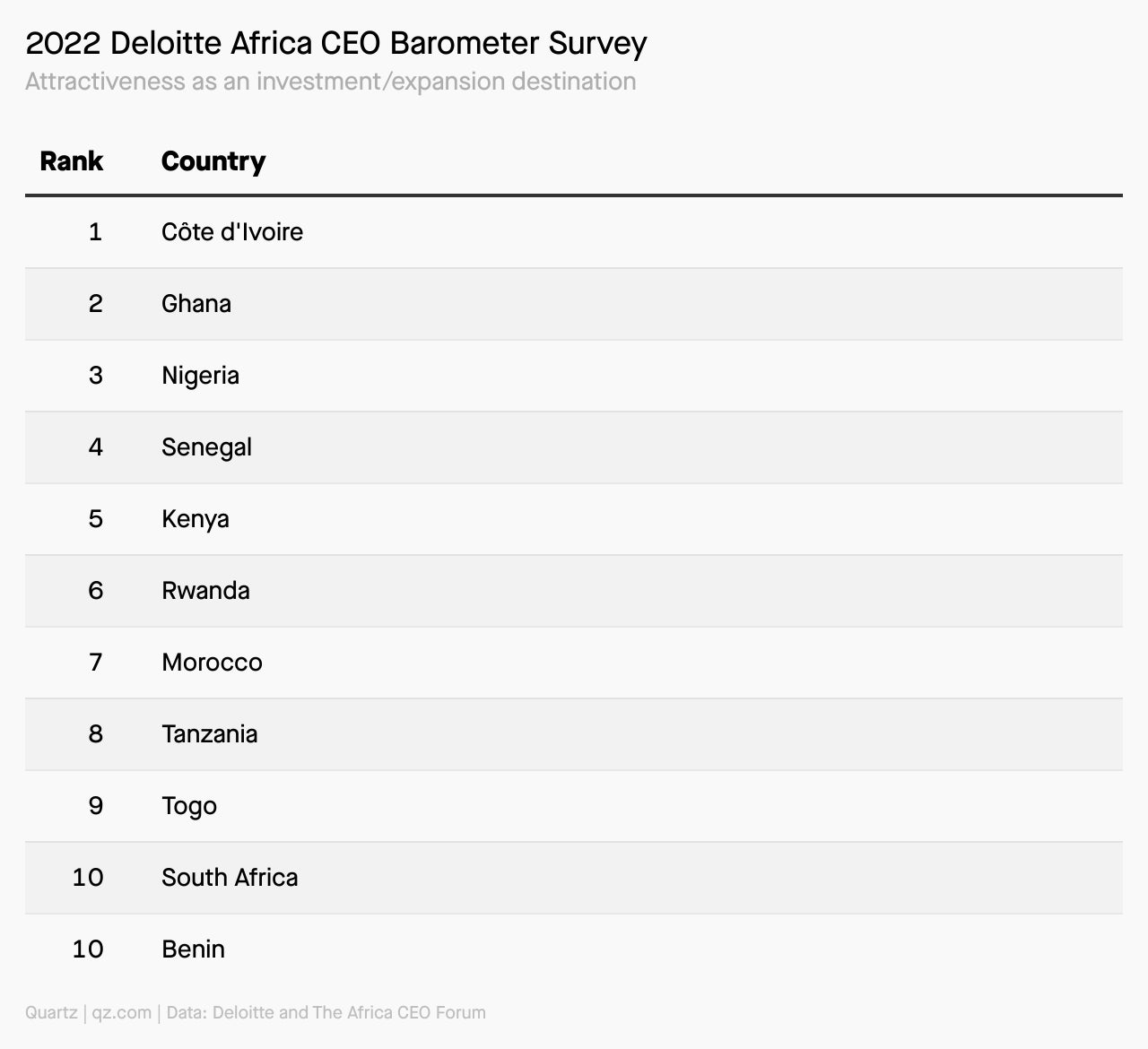🌎 Flying blues
Good morning, Quartz readers!


Good morning, Quartz readers!
Here’s what you need to know
Colombia elected its first left-wing president. Gustavo Petro, a former mayor of Bogotá and ex-guerilla fighter, claimed victory after running on a platform to combat inequality.
Bitcoin dropped below $20,000. The cryptocurrency slumped this weekend, reaching its lowest level since December 2020, and continues to hover at the symbolic threshold.
US air travelers faced major disruptions over the weekend. Thousands of flights were canceled or delayed as airlines struggle with staff absences.
The UN’s top diplomat condemned fossil fuel companies and their financial backers. Secretary-general Antonio Guterres’s position clashed with US president Joe Biden’s call on energy producers to drill more oil.
Apple employees voted to form the company’s first US union. Retail workers at an Apple store in Maryland voted by a nearly 2-to-1 margin to unionize amid a nationwide surge in labor organizing.
The US marked its second-ever Juneteenth as a federal holiday. Celebrations in the nation’s capital were marred by a shooting at a street party.
Swimming world’s governing body restricted transgender athletes’ participation at elite competitions. FINA’s set hormone-based criteria for inclusion in men’s or women’s events.
What to watch for
Europe is adjusting to new cuts in its natural gas supply after Russia stopped or reduced the flow of gas into a dozen countries including Germany, France, Poland, and Italy last week. The fuel cuts coincide with a heat wave stretching across Europe from the Mediterranean to the North Sea.
In response, Germany announced yesterday it would restart its coal-fired power plants, a setback for climate policy after the country invested $45 billion to phase out coal by as early as 2030. Italy may be forced to ration gas and burn more coal to meet power demand this week, and Spanish power plants are stockpiling gas to prepare for coming shortages. In the coming days, more European governments are likely to announce their plans for coping with fuel shortages.
Will Amazon run out of people to hire?
Amazon, the world’s second largest private employer, may be running out of people to hire. An internal research memo obtained by Recode indicated that the e-commerce giant is worried its available US warehouse labor will deplete very soon.
Amazon has played down the implications of the research memo, saying it doesn’t represent what’s really going on. But even if the company isn’t on the cusp of a labor shortage, it is struggling with attrition as employees raise concerns about unsafe working environments and lead unionization efforts. It’s clear even Amazon knows it’s getting harder to find people who consider the work fulfilling.
2024: Year the memo predicts Amazon’s US warehouse labor supply will dry out
75%: Rate at which Amazon’s global workforce grew during the pandemic
70%: Share of Amazon’s retail business sales that are in the US
$18: Amount Amazon has raised its minimum wage to, on average
Africa’s CEOs are hyped on Côte d’Ivoire

Côte d’Ivoire is reclaiming its reputation as a top investment destination in Francophone Africa—and on the continent as a whole, according to the 2022 CEO Barometer Survey released at the Africa CEO Forum in Abidjan, the largest annual gathering of Africa’s private sector.
Political stability, favorable business climate reforms, and a strong economy are the key factors in the west African country’s renewed prominence.
Quartz Africa editor Ciku Kimeria wrote about why companies want to do business in Côte d’Ivoire in the latest Quartz Africa Weekly briefing. Keep up with the continent by signing up today and reading our latest edition.
Quartz most popular
🏀 The Warriors’ $1.6 billion bet on live sports is finally paying off
✦ Love stories like these? Support our journalism by becoming a Quartz member. Sign up today and take 40% off.
Surprising discoveries
Half of Japan’s businesses may still be using Internet Explorer… A report found a fifth of companies didn’t even have a plan for switching browsers once Microsoft ended support.
…while in South Korea, Internet Explorer got a final resting place. A software engineer paid 430,000 won ($330) for a headstone commemorating the browser on top of a cafe.
Nepal is moving its Everest base camp to a lower altitude. Climate change and overuse is melting the Khumbu glacier where 1,500 people gather each season.
There’s already litter on Mars. NASA believes a shiny object photographed between two red rocks is a piece of a foil thermal blanket from a 2021 mission.
People are saving their pee for farmers. A fertilizer shortage has inspired some Americans to fill jugs with urine to help their local growers increase crop yields.
Our best wishes for a productive day. Send any news, comments, Internet Explorer memorabilia, and space trash pickers to [email protected]. Reader support makes Quartz available to all—become a member. Today’s Daily Brief was brought to you by Julia Malleck, Sofia Lotto Persio, Nicolás Rivero, Ana Campoy, and Morgan Haefner.